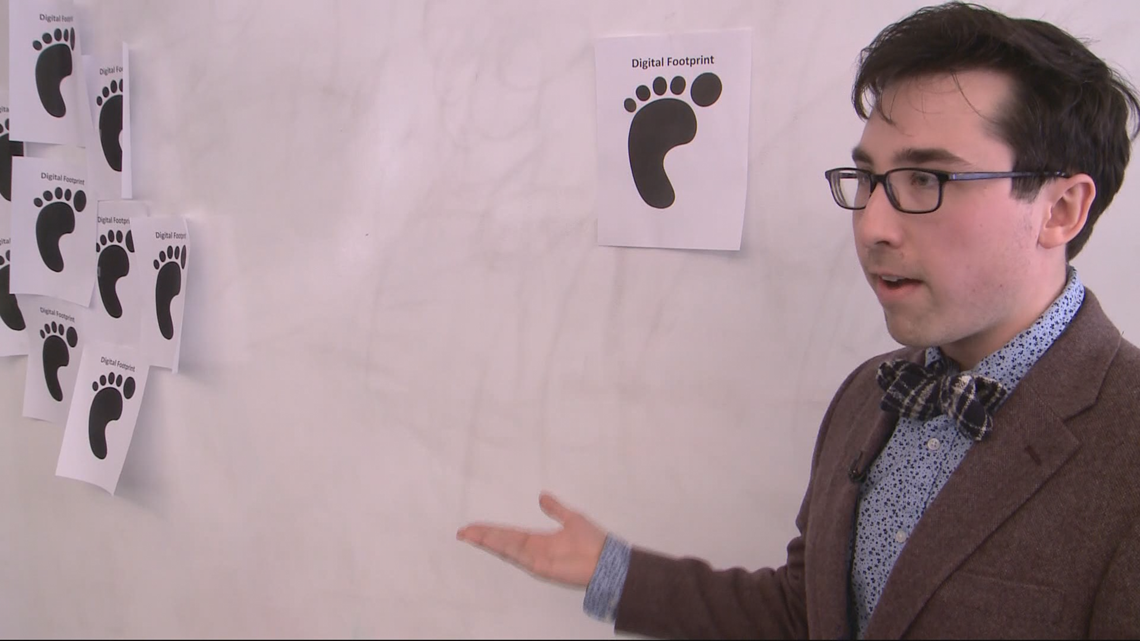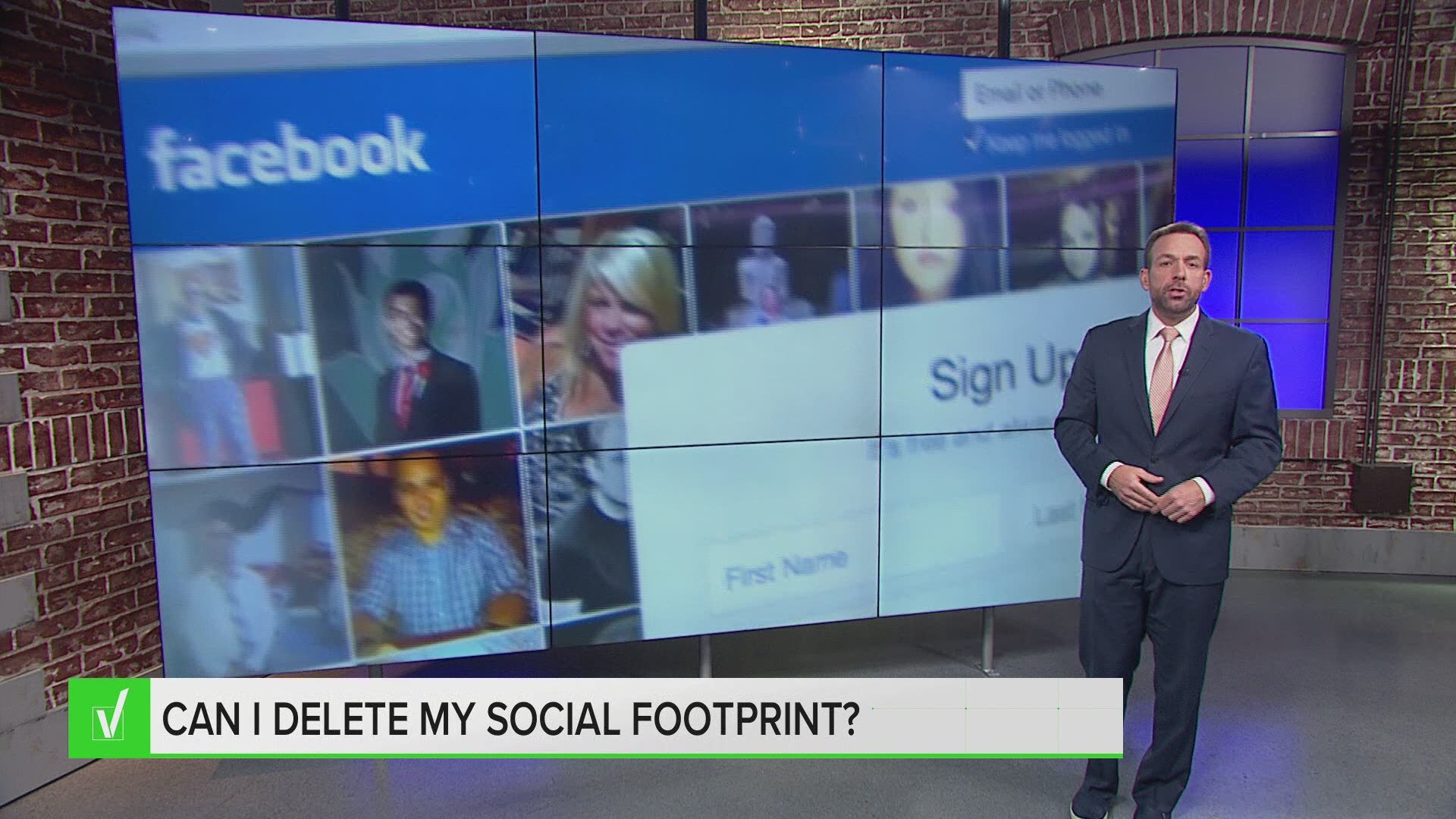QUESTION:
Can you ever really delete yourself off of the internet?
ANSWER:
It depends, but probably not.
SOURCES:
Lance Hoffman -- Founder of George Washington University's Security & Privacy Research Institute
Jacob Biesiada -- Graduate Student at George Washington University, Cyber Security Expert & Host of Dcrypted blog
PROCESS:
On average, people who use the internet are online for close to seven hours each day, according to a 2019 report from We Are Social and Hootsuite.
Eighty percent of U.S. adults use the internet at least daily, and of those who do, 28% say they go online "almost constantly," according to a Pew Research study.


With so much information passing through our finger tips, Verify viewer Ray Mahar from St. Leonard, Maryland asked the verify team: "Can you truly delete yourself from the internet?"
WUSA Anchor Adam Longo met Mahar at George Washington University to get some answers. They discovered, there's no simple answer.
"It depends," Lance Hoffman, director of the Cyber Security Policy and Research Institute at The George Washington University, said.
That's the short answer.
"It depends on a lot of things including what protections you put in from the beginning, what the vendors are doing and what the software is doing," Hoffman expounded. "Are you using just one piece of software from one manufacturer or are you using several?"
Our cyber security experts say organizations like commercial businesses want to track and compile data about you. These groups look at things like your credit history, your shopping habits and your internet browsing.
"Let's imagine you're posting something online...perhaps you have second thoughts," Jacob Biesiada, a graduate student and cyber security expert at George Washington University, said. "The issue is, during that time that it was uploaded, it's likely someone else downloaded that image and re-posted it somewhere else."


Biesiada said, even if you contact the service provider -- Facebook, Twitter, Youtube -- in order to get the post removed, it's not clear cut.
"Throughout all this time, innumerable numbers of people, including automated procedures for scraping information, could be pulling your information," Biesiada said, "making it next to impossible to have that information removed."
We can Verify, it's actually really difficult to completely erase what the web already has on you.
So if you Google yourself and find information, you'd rather other people not see, what can you do?
Google recommends contacting the website owner who published the information and asking them to remove it. If they do, then the info won't show up in Google searches.
To find out the website owner, you can use a tool called "Whois."
Google said if you contact them, they'll remove some of your information, but not all.
Information they may remove includes: U.S. Social Security Numbers (and other forms of national ids), bank account numbers, credit card numbers, images of signature, nude or sexually explicit images that were uploaded or shared without your consent and confidential medical records.
Google tends not to remove basic contact information like a person's date of birth, address or phone number, since "it is made publicly available through official government websites."

